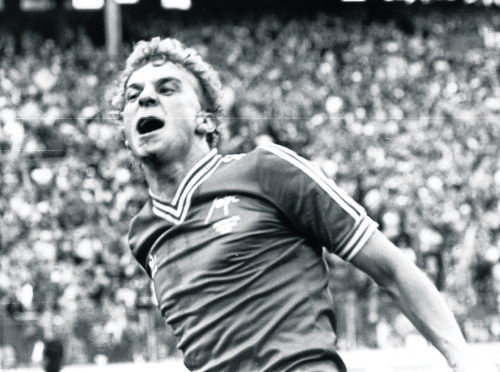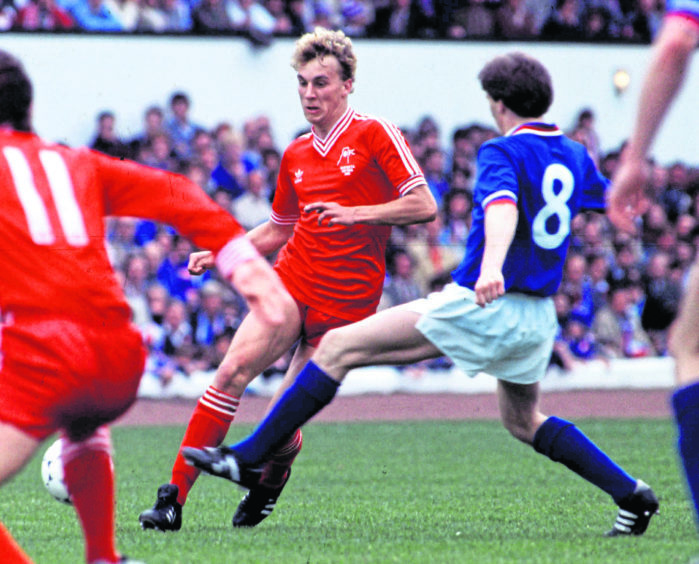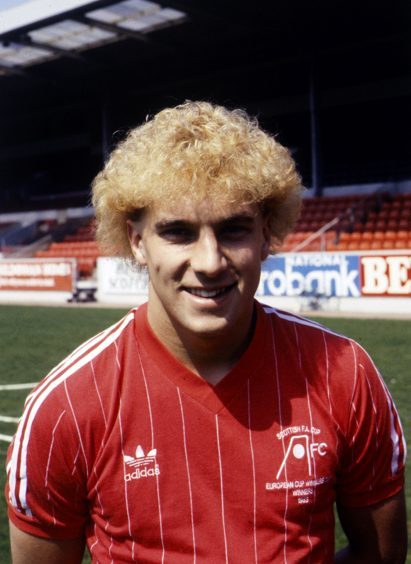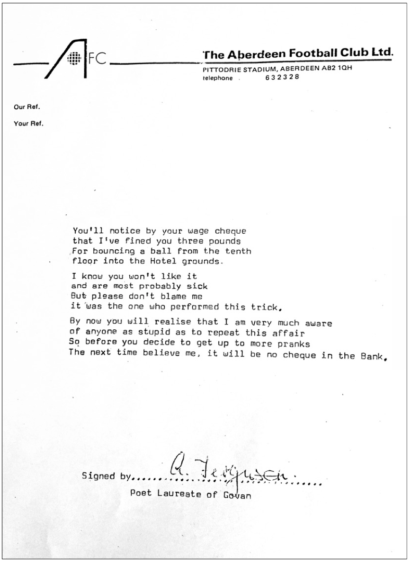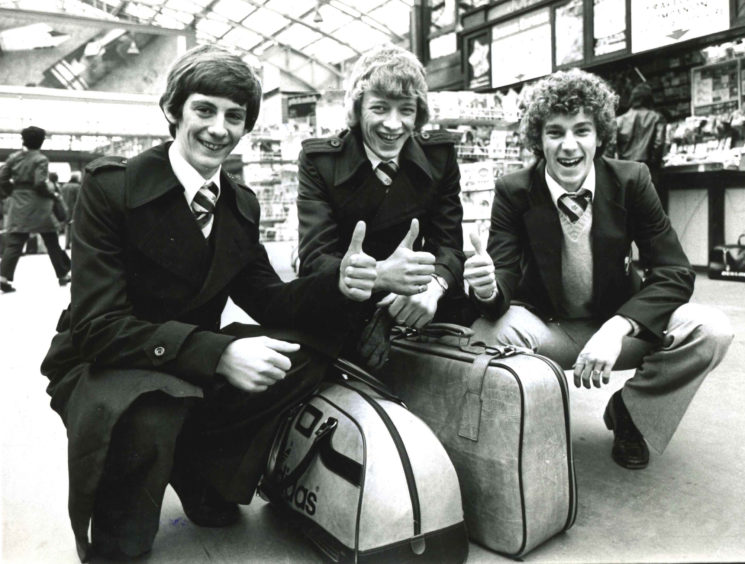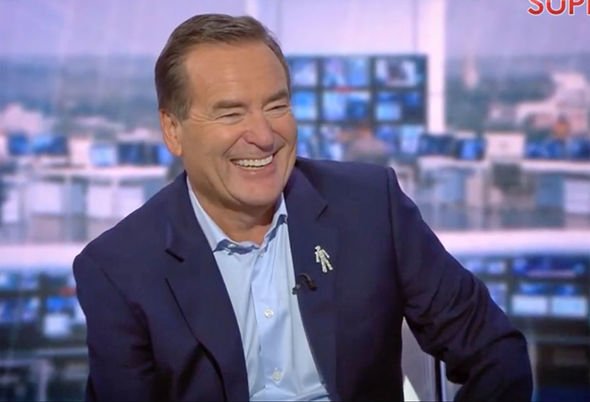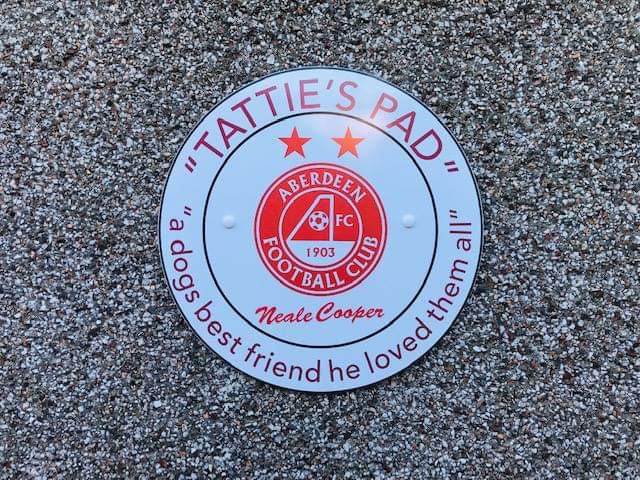Few British football teams have made such an enduring impression on the international stage as the Aberdeen side which won the European Cup Winners’ Cup on a rainy night in Gothenburg in 1983.
The Gothenburg Greats, managed by Alex Ferguson, were a remarkably close-knit group that developed near unshakeable bonds of comradeship and camaraderie which extended way beyond the pitch.
These men cared for one another, looked after one another and even as they veered off in different directions in their lives, nobody was more popular among the squad or more pivotal to their impressive exploits than Neale Cooper.
Even now, two years after his untimely death at 54, there’s still a sense of disbelief that the Darjeeling-born devil-may-care character should have been the first to leave us.
He belonged to another generation, and grew up in starkly different circumstances from those faced by the modern generation, but whether starring for the Dons, Dunfermline Athletic or Rangers, or managing at Ross County or Hartlepool, Cooper was one of those blithe, bright-eyed individuals who left a smile across the sport he graced.
And, if you need any reminding of why, let’s take a stroll down memory lane.
Flushed with success in his early years at Pittodrie
Imagine the scene: you have just left school and gained the opportunity to join a professional football club, but then you discover that one of your first jobs is cleaning the toilet of none other than your boss.
That was what confronted Cooper in 1979, when as a young hopeful at Aberdeen, he found himself tasked with keeping Alex Ferguson’s throne in pristine condition.
It was the sort of strict regime which might be dismissed as demeaning these days, but the young Cooper, a bright-eyed ball boy and fervent football fan, even before he signed a contract, was ready to do anything he could to succeed at the highest level.
So what if he was expected to get down and dirty in his role as trainee.
As far as the teenager was concerned, it was all part of his learning process at the club.
He recalled: “Before I made my Aberdeen debut, I was cleaning Fergie’s toilet – maybe that’s how I got a game!
“It was my job, looking after his room and the coaches room.
“Then, one day he came in and said: ‘When you have finished cleaning that toilet, get yourself home’.
“I asked why. And he replied: ‘Because you are playing tomorrow’.
“I was 16 and here I was finding out that I was starting the next day. I hadn’t trained with the first-team and when I went home and told my mum, she didn’t believe me.
“I’d gone from cleaning Fergie’s toilet to starting a first-team game for him.
“I was young, but he had that belief in me.
“Cleaning toilets on a Friday afternoon, playing for the first-team the next day and that’s what we all did – washed the strips and brushed the boots of the players you played with.
“There is nothing wrong with that approach. We all had a laugh, but I think it was good grounding for footballers and it brought us all closer.’’
Fergie takes the role of linesman for a fine old time
Sir Alex Ferguson has become famous – and feared – for his strict discipline and refusal to accept anything other than the highest standards from his charges.
The words emblazoned on a sign in his office – “AhcumfiGovan” – testified to his close affinity to the Glasgow shipyards and he has never suffered fools gladly.
Yet there was one instance where Fergie preferred being a bard to a badass and it happened when he and his team were on a pre-season trip to Spain in the early 1980s.
It was a setting ripe for mischief and merrymaking and Neale Cooper, known to all and sundry as “Tattie”, was one of the most extrovert personalities in the dressing room.
It led to a most unusual case of a whole team being fined – in verse.
Neil Simpson, who was also on tour, recalled the team’s trip to Poetry Corner.
He said: “We were in Benidorm pre-season with Aberdeen and, inevitably, the boys get a bit bored on occasion.
“Neale Cooper and John Hewitt were sharing a bedroom on the fifth floor, and decided to drop a football from the window to see how high it would bounce back up again.
“So they hung out, and let it go, the ball caught the edge of the swimming pool and rebounded over the perimeter fence never to be seen again.
“When we got our payslips in at the end of the week, we found all the boys had been docked three pounds each without warning.
“It turned out Alex Ferguson and Archie Knox had been sitting by the pool and had seen the whole thing unfold in front of their eyes, and we each got a copy of a poem, which was written by the boss, to remind us of our responsibilities.”
Cooper always made an impression on his old gaffer
Even after his glory days on the pitch, during which time he collected league titles, Scottish Cup medals and European honours with Aberdeen, and added to his silverware at Ibrox, Cooper proved he could cut the mustard at management level.
He was – and remains – a cult figure in Hartlepool and has become one of the most cherished members of the English club’s Hall of Fame.
Yet, despite assuming a senior role at Victoria Park and steering them to uncharted heights, he was happy to indulge in spontaneous impressions of those with whom he had worked.
Sky Sports presenter, Jeff Stelling, was among those who saw how skilful Cooper could be in the art of mimicry.
He recalled: “I do remember the first time I met him we took a camera crew to the hotel in London where the team were staying to do an interview with him.
“I had heard about his reputation for doing a Sir Alex Ferguson impression so, not knowing him at all, the first thing I asked him was if he would do it – and he refused point blank, in the nicest possible way, of course.
“Tattie was the sort of guy who just couldn’t help himself though – and five minutes later he was in full, fluent Fergie mode and that was just the sort of fella he was.
“I just hope that people in the football world know that he wasn’t just loved in Aberdeen but that he was loved in Hartlepool as well because Hartlepool was his second home.”
Cooper never took himself too seriously – or even the praise of legends
Neale Cooper was a natural born entertainer, blessed with the ability to weave his idiosyncratic individuality into a team ethic.
Even when he was acting as a midfield “enforcer”, looking after the likes of Gordon Strachan, he usually played with a smile on his face.
Many others wondered why on earth he never gained a single Scottish cap, especially after excelling at youth level.
But he didn’t have any sense of entitlement and refused to waste breath pondering what might have been.
His down-to-earth philosophy was beautifully summed up by his reaction to the great Franz Beckenbauer declaring – after the Dons had beaten Bayern Munich in Europe in 1983 – “The young Neale Cooper is the closest thing I have seen to me at that age”.
The Scot’s reply?
“That just shows that even the very best can talk sh***.”
No wonder he was close to the fans during his career.
He is still close to them now.
